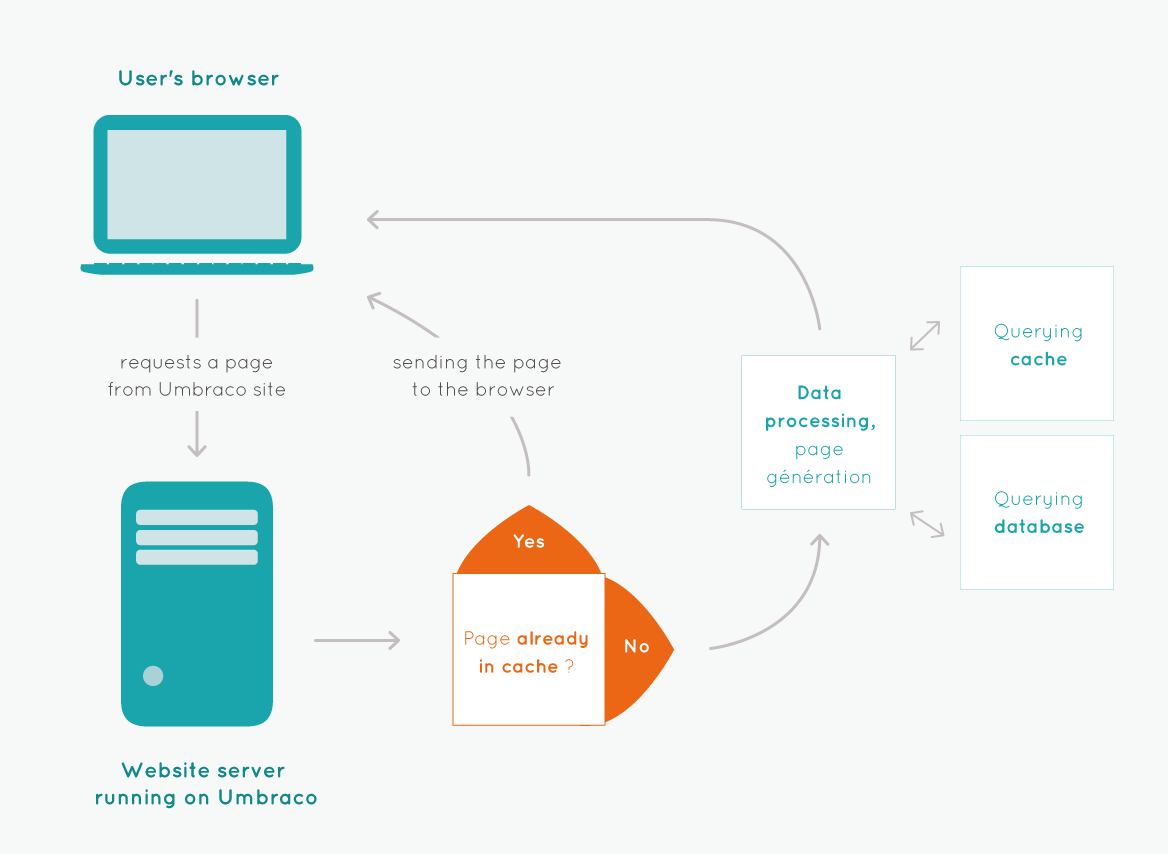8. Quick, quick

It’s hard to be more efficient than Umbraco. It inherits all the mechanisms of the .NET platform enabling it to respond in a split second instantly.

A CMS optimised at all levels to ensure editing comfort and loading performance.
The performance requirement is an essential aspect in any web project. If ignored, it could lead to unpleasant surprises. For example a server that crashes as soon as the number of simultaneous hits reaches a critical level.
With a standard architecture (ex: 3GHz with 4GB RAM), Umbraco displays performances way above those of its competitors. It boasts a multiple level cache system that limits interactions with the database and files to a strict minimum. As a result, response times are very reliable.
You can expect average response times of 65ms on sites with low traffic, and 150ms on sites supporting moderate traffic. To give you an idea, umbraco.org responds in 250ms on average, where drupal.org responds in 800ms on average.
The codes that require longer processing are also stored in the cache, so as to avoid having to reinterpret them each time the page is displayed, thus reducing execution time. In addition, the contents are stored in the memory for faster access. Coupled with .NET native cache system, loading performances are simply excellent.

For the Back-office, forget the hourglass and other rotating elements designed to keep you waiting. When you edit, save, or publish documents, no sluggishness will interrupt your work. Indeed, Umbraco carries out most of the processing asynchronously on the server, that is, with no slowing down in the browser.
Semmeo ranking: Performances
Umbraco relies on the robust ASP.NET Framework and implements a very efficient cache system.
- With Drupal or WordPress performance is often degraded due to the necessity to install many additional modules that are not so well optimised, developed by third parties.
- WordPress delivers good performances but it is not so good with high load increases on standard technical configurations.

